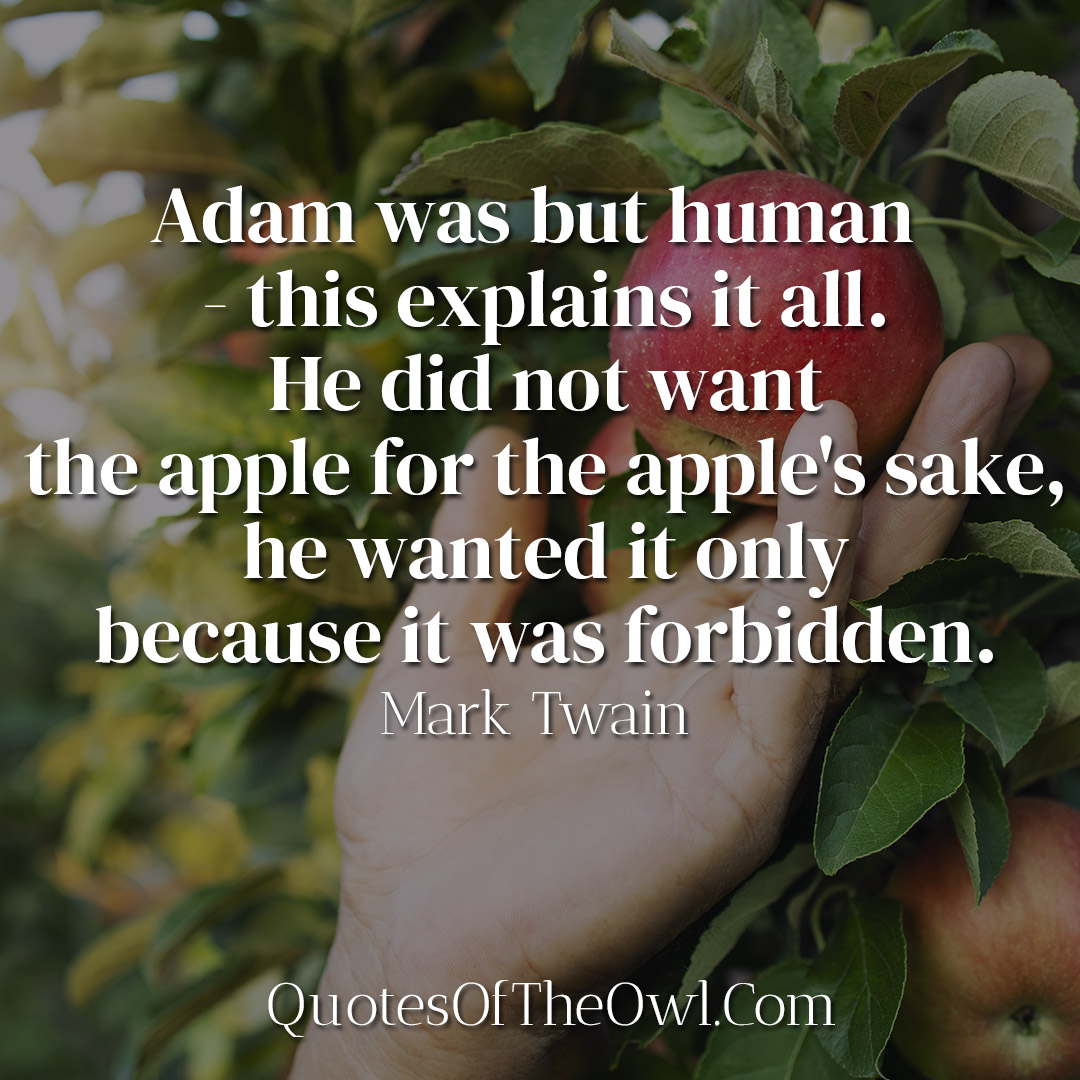“Adam was but human – this explains it all. He did not want the apple for the apple’s sake, he wanted it only because it was forbidden.” – Mark Twain
Human nature has always been shrouded in complexities, with desires often tangled between what is permissible and what is forbidden. Mark Twain’s profound statement about Adam’s temptation with the forbidden apple encapsulates a fundamental aspect of human behavior—a fascination with the forbidden. This article delves into the layers of this quote, unraveling the intricacies of human desires, temptations, and the allure of forbidden acts.
Understanding the Forbidden Fruit
In many narratives, the apple symbolizes temptation and the allure of something forbidden. Its significance can be traced back through history and across various religious and cultural contexts. The forbidden fruit embodies the essence of desires that are tantalizing because of their prohibition, igniting curiosity and fascination in human minds.
Human Desire and Forbidden Acts
Mark Twain’s quote delves deep into the human psyche, highlighting the intrinsic desire for the forbidden. Adam’s yearning for the apple wasn’t rooted in the fruit itself, but in the fact that it was forbidden. This inclination toward forbidden acts or objects stems from the allure of the unknown, the thrill of transgression, and the challenge of defying established norms.
Analyzing the quote’s meaning
Understanding this quote extends beyond biblical interpretations; it delves into the psychology of human behavior. Forbidden desires often hold an inexplicable pull, creating an internal conflict between what one should do and what one wants to do. It speaks volumes about human nature, showcasing the complexity of desires and the allure of forbidden acts.
Exploring Temptation
Temptation, as illuminated by this quote, is a universal human experience. It’s not merely about succumbing to the forbidden but also about the struggle to resist it. Psychologically, forbidden desires create a burst of intrigue, often clouding rational judgment and influencing decision-making.
The Complexities of Human Nature
Human nature embodies a paradoxical relationship with forbidden things. While there’s an innate fascination with what’s prohibited, the act of forbidding something can paradoxically amplify its appeal. Prohibition often intensifies attraction, leading to a continuous cycle of desire and denial.
Resisting Forbidden Temptations
However, resisting forbidden temptations isn’t impossible. Strategies like self-control, mindfulness, and understanding the underlying motivations behind these desires can aid in overcoming them. Recognizing the allure as a product of societal constructs and psychological impulses can empower individuals to make conscious choices.
Discover more Quotes by Mark Twain.

